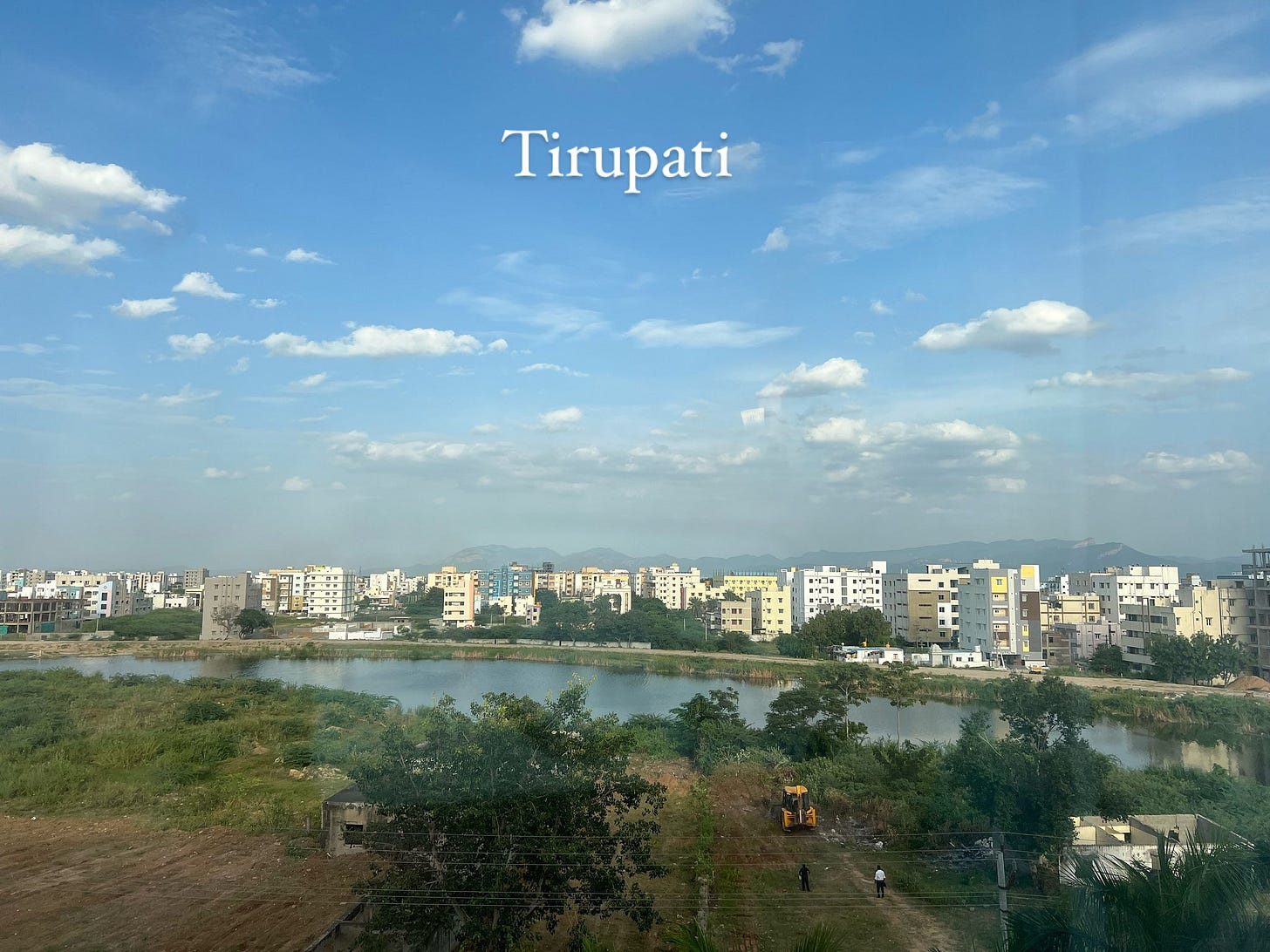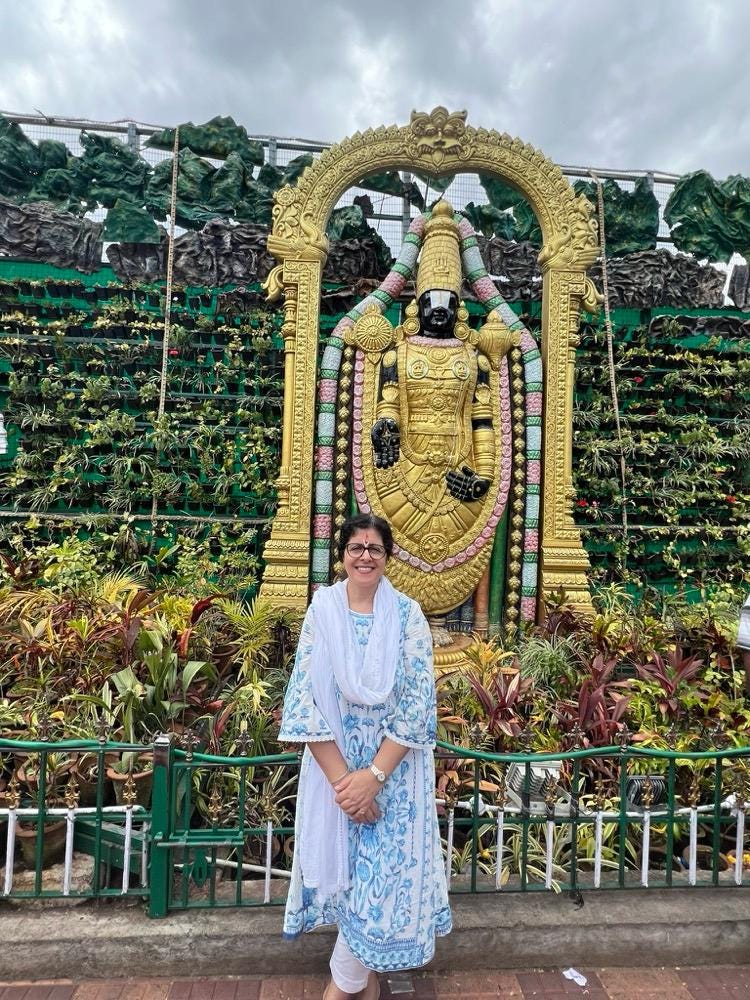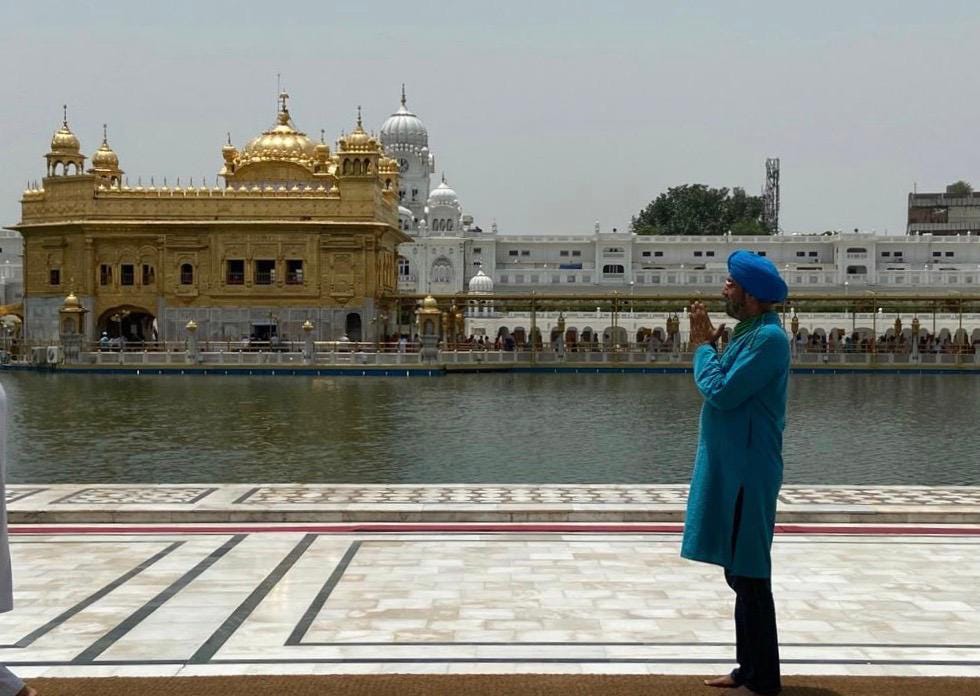The Tirupati Temple's Laddu Prasad Controversy: Alleged Use of Animal Fats Shakes Devotees’ Faith
Tirumala Tirupati Devasthanams (TTD), a statutory trust that manages the temple, has denied the allegations of adulteration while Telugu Desam Party has sought forgiveness from Lord Sri Venkateswara.
Controversy Surrounding Tirupati Laddu Prasad
The sacred Tirupati laddus, a much-revered prasad offered at the Tirumala temple, have recently found themselves at the centre of a storm of controversy. Reports suggesting the alleged use of animal fats in the ‘laddus’ have raised alarm among devotees, igniting a widespread debate over food safety, quality control, and the sanctity of religious practices. For many, any compromise on the purity of these temple offerings not only threatens religious sentiments but also calls into question the management of prasad preparation at one of the world’s most visited pilgrimage sites.
Amit Malviya's Swift Reaction Fuels the Debate
BJP leader Amit Malviya was quick to respond on Twitter, amplifying the controversy. He posted: “Lab test report confirms beef fat, fish oil used in making laddus at Tirupati Balaji Temple. Those responsible for this act of defiling Hindu religious sentiments must be incarcerated. Unless Hindus unite, they will be subjected to such humiliation, in the name of ‘secularism.’” His remarks have further fuelled the debate, underscoring the potential political ramifications of the issue while rallying for the defence of Hindu sentiments.

The Allegations: Lab Reports Raise Serious Concerns
The controversy erupted when a report from the National Dairy Development Board's Centre of Analysis and Learning in Livestock and Food (CALF) allegedly indicated the presence of foreign fats, including beef tallow, fish oil, and lard, in the ghee used for preparing the famous Tirupati laddus. For a temple revered by millions of Hindus, this news has sent shockwaves across the country, as beef tallow and other non-vegetarian fats are considered strictly forbidden.
Such an accusation strikes at the heart of religious practices and has generated outrage not only due to the suspected use of animal products but also because of the alleged violation of the strict vegetarian traditions that the Tirumala Tirupati Devasthanams (TTD) claims to uphold.
Impact on Devotees' Trust
The presence of foreign animal fats, if confirmed, could damage the deep trust devotees have in the temple's management. These laddus, offered as prasad, are sacred in Hindu customs, and any adulteration would not only constitute a violation of faith but could also lead to legal consequences for the temple authorities.
Denials and Apologies by TTD and Telegu Desam Party Respectively
In response to the serious allegations, the Tirumala Tirupati Devasthanams (TTD) initially issued a firm denial, insisting that the ghee used in prasad preparation is sourced only from certified vendors and adheres to the highest purity standards. The TTD categorically rejected the claims, labelling them as baseless and suggesting that they could be part of a politically motivated attempt to tarnish the temple’s reputation. "The sanctity of our prasad is paramount, and we use only pure ingredients," a TTD spokesperson stated. Despite these denials, the gravity of the accusations calls for a thorough investigation, as mere refutations will not be enough to restore the shaken faith of devotees.
Adding to the controversy, Telugu Desam Party (TDP) spokesperson Anam Venkata Ramana Reddy remarked, "CM N Chandrababu Naidu had stated that animal fat was used as one of the ingredients for the preparation of ghee supplied to Tirumala Tirupati Devasthanam. The lab reports from the National Dairy Development Board in Gujarat certify that beef tallow, lard, and fish oil were present in the ghee supplied to Tirumala, and the S value is only 19.7. This is an affront to Hindu religion. The prasad, offered to the Lord thrice a day, has been mixed with this ghee. We hope that justice will be done and Lord Govind will forgive us for any mistakes that have been committed."
Ghee Adulteration: A Plausible Explanation?
Food safety experts have suggested that the alleged contamination could stem from ghee adulteration within the supply chain rather than an intentional inclusion of non-vegetarian ingredients by the temple. Adulterated ghee is a known issue in India, where substandard products often enter the market.
Experts argue that large-scale suppliers may unintentionally include foreign fats due to lax quality control mechanisms or in pursuit of higher profits, thereby explaining how such ingredients could have found their way into the laddus. If this theory holds, the controversy may highlight a larger systemic issue of food adulteration in India, rather than any deliberate wrongdoing by the TTD.
The Ghost of the 1980s: The Beef Tallow Scandal Revisited
The Tirupati laddu controversy has brought back memories of the infamous beef tallow scandal of the early 1980s, which similarly shook the nation. During that period, reports surfaced that beef tallow—a type of animal fat derived from cows—was being imported and mixed with vanaspati, a vegetable-based cooking oil widely used in Indian households. The scandal sparked outrage, especially among the Hindu community, for whom the cow is considered sacred. Protests erupted in several states, including Punjab and Bihar, and the issue quickly spiralled into a major political controversy.
Opposition leaders at the time, such as Atal Bihari Vajpayee and L.K. Advani, seized the moment to criticise Prime Minister Indira Gandhi’s government, accusing it of being negligent and complicit in allowing beef tallow imports. The issue became highly politicised, with calls for stricter regulation of food products and an immediate ban on beef tallow imports. The government responded by imposing a total ban and ordering a Central Bureau of Investigation (CBI) inquiry into the matter, leading to arrests and nationwide raids.
This scandal serves as a stark reminder of the sensitivities surrounding religious and dietary practices in India, particularly when it comes to the use of animal products. The current controversy over the Tirupati laddus, while centred on different circumstances, taps into the same deep-seated anxieties and cultural taboos that made the 1980s scandal such a potent issue. If history is any indication, this incident could have far-reaching social and political consequences unless handled with transparency and care.
The McDonald's Beef Tallow Controversy in the U.S.
In 2001, McDonald's in the United States faced widespread outrage when it was revealed that the company had been using beef tallow in the preparation of its French fries, despite marketing them as vegetarian. This disclosure angered many strict vegetarians and Hindus living in the U.S., for whom beef consumption is strictly prohibited due to religious beliefs. The controversy led to a lawsuit against McDonald's and sparked protests, particularly from the Hindu and the Jain community. In contrast, no such scandal occurred in India, as McDonald's India has consistently maintained that their fries are 100% vegetarian, cooked in vegetable oil, and prepared in separate kitchens to respect religious and cultural sensitivities. The company also ensures the use of the green dot symbol on all vegetarian products sold in India, offering reassurance to its customers.
Lessons from the Tirupati Controversy
a.) Ensuring Purity in SGPC’s Ghee Procurement for Gurdwaras, Including Darbar Sahib Amritsar
In light of the recent controversy surrounding the alleged use of animal fats in Tirupati laddus, the Shiromani Gurdwara Parbandhak Committee (SGPC) must exercise extreme caution in its procurement of desi ghee, especially as it begins sourcing from outside Punjab. The decision to award a tender to a Pune-based company, based solely on the lowest price quote, could have far-reaching consequences given the immense sensitivity surrounding prasad preparation. The Tirupati incident is a stark reminder that any compromise on the quality of ingredients, especially for sacred offerings, can result in a loss of trust from devotees and widespread public outrage.
To avoid a similar crisis, the SGPC should implement rigorous quality control measures, including regular testing of ghee samples from all suppliers, irrespective of the cost. While cost-effectiveness is important, it must not come at the expense of purity, religious sentiments, and the sanctity of langar and karah prashad. The procurement strategy should prioritise trusted suppliers who meet the highest standards of purity and reliability, rather than simply opting for the lowest bidder.
Balancing Cost and Religious Responsibility
The SGPC’s recent decision to award a tender to Sonai Dairy, a Pune-based company, over Verka—produced by the Punjab Milk Producers Federation & Cooperative Society (Milkfed)—has sparked concerns among both farmers and devotees. While the lower price quoted by Sonai Dairy (Rs 315 per kg) compared to Verka’s (Rs 399 per kg) offered immediate cost savings, it has raised questions about the quality of ghee being supplied at such a reduced rate. This decision also dealt a significant blow to Punjab’s dairy farmers, leading to muted protests owing to an estimated annual income loss of Rs 60 crore. The Punjab Government has urged the SGPC to reconsider its procurement strategy, especially given that 99% of the state’s 3.5 lakh milk producers are Sikhs.
The controversy highlights a crucial point: while financial prudence is necessary, it should not come at the cost of eroding the sanctity of religious offerings. The SGPC must prioritise purity and community trust, recognising that the use of substandard or adulterated ghee in sacred food preparations could have catastrophic consequences, both spiritually and socially. The safety and sanctity of prasad and langar must always remain paramount, and the SGPC must ensure that its decisions reflect the highest ethical standards in procurement, with a firm commitment to quality over cost savings.
The Call for Tirupati Investigation: Demands for Transparency
Given the potential gravity of the situation in respect of the Tirupati ‘prasadam’, demands for a comprehensive, impartial and expeditious investigation have risen from various quarters. Politicians, religious leaders, and food safety activists have all urged the government to intervene and clarify the facts.
What Needs to Be Done?
Thorough Investigation: Authorities, including food safety regulators and independent experts, must investigate the entire supply chain to trace the source of any adulteration. This would involve testing ghee samples not just at the temple but across all vendor supplies.
Stringent Quality Control: If the investigation reveals weaknesses in the quality control systems, the TTD will need to implement more rigorous checks and inspections to ensure that only pure and safe ingredients are used in prasad preparation.
Transparent Communication: To restore the faith of millions of devotees, it is crucial that temple authorities keep the public informed about the investigation's progress and findings.
Avoiding Politicization: A Delicate Balance
While the allegations have stirred a significant uproar, politicising the issue would only aggravate communal tensions and divert focus from the real concern—food safety and religious sanctity. Some political parties have already attempted to seize on the issue to gain electoral advantage, but this could escalate into unnecessary polarisation.
It is vital to approach the situation with sensitivity, recognising the religious implications while ensuring a fair investigation. The focus must remain on protecting the religious practices and traditions of the Tirumala temple, without inflaming communal divisions.

Summing Up: A Matter of Faith and Accountability
The Tirupati laddu controversy is more than just a food safety issue—it is a matter that strikes at the very heart of religious belief. If the allegations of contamination are proven, the implications could be profound, not only for the TTD but for food safety practices in religious institutions across India.
However, this sensitive issue must be handled with caution, avoiding knee-jerk reactions or politicisation. A transparent, thorough investigation is essential to uncover the truth, ensure accountability, and restore the sacred trust of millions of devotees. Until the full facts are known, all parties should resist the temptation to jump to conclusions. The sanctity of Tirupati’s sacred laddu prasad must be preserved, whatever the outcome of the inquiry.







…..pending the investigations, it will also be looked as one political issue with unending conclusions…..